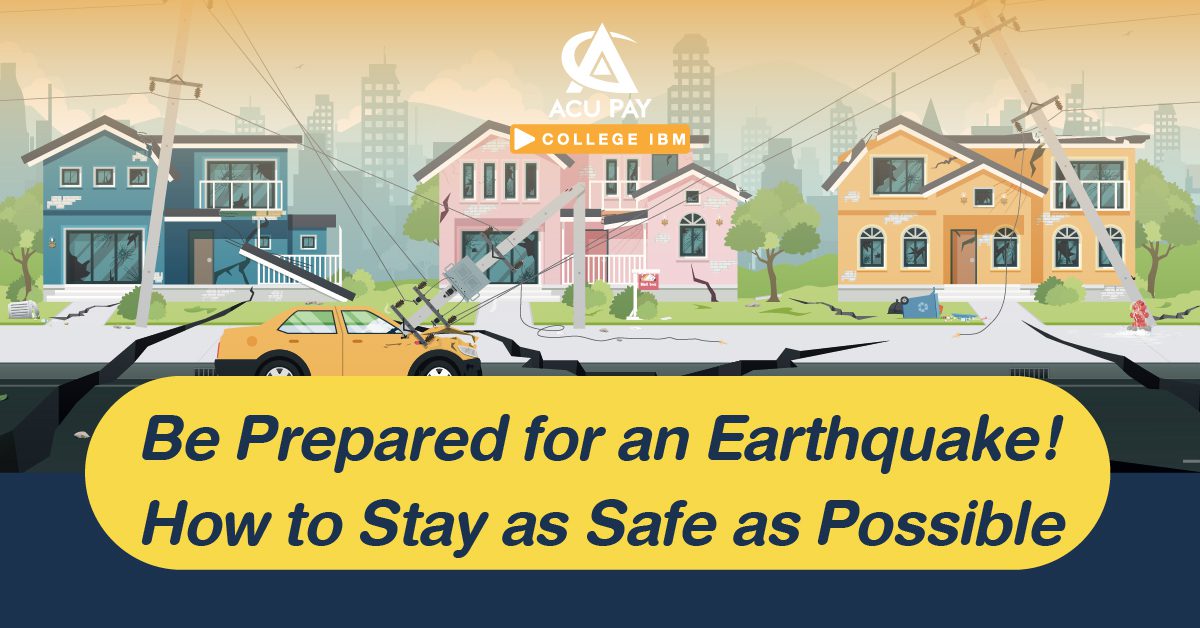

Imagine this: you’re working, watching TV, or just taking a walk when the ground suddenly starts shaking hard under your feet. Things fall off shelves, glass breaks with a loud crash, and people around you panic and try to run away. What would you do?
Don’t worry—today, ACU PAY is here to walk you through the complete guide on how to survive an earthquake, covering what to do before, during, and after it happens to help keep you and your loved ones as safe as possible.
If you’re indoors
Drop under a sturdy table.
Cover your head and body with your arms or a cushion.
Hold onto the table until the shaking stops.
If you’re outdoors
If you’re in a vehicle
If you’re near the sea
Preparing in advance and knowing the correct actions to take can help you survive an earthquake safely.

Make all your financial matters easy. Start a great day with us. MAKE A GREAT DAY WITH ACU PAY.